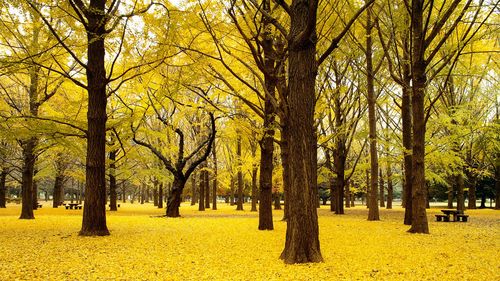Exploring the Rich Diversity of Zimbabwe Culture
Zimbabwe, located in southern Africa, is a country with a rich cultural heritage that is deeply rooted in its history and traditions. The country has a diverse population that includes several ethnic groups, each with its unique language, customs, and traditions. In this article, we will explore the rich diversity of Zimbabwe culture and take a closer look at some of the most fascinating aspects of Zimbabwean culture.
Traditional Zimbabwean beliefs and customs
One of the most crucial aspects of Zimbabwean culture is its traditional beliefs and customs. Zimbabweans have a deep respect for their ancestral heritage, and many of their customs are centered on this belief. One of the core beliefs in the Zimbabwean culture is the importance of ubuntu, which refers to the bond of community and the respect for one another.
The practice of traditional religion is also prevalent in Zimbabwe. The Shona and Ndebele people believe in the existence of ancestral spirits and worship them through various rituals and ceremonies. The traditional religion of Zimbabweans is an essential part of their culture that continues to be passed down from one generation to another.
Zimbabwean Food and Cuisine
Zimbabwean cuisine is another aspect of Zimbabwean culture that is worth exploring. The country’s food culture reflects its diverse population, with a blend of traditional and modern cuisine. One of the most popular dishes in Zimbabwe is Sadza, a cornmeal-based dish that is served with meat and vegetables.
Other popular Zimbabwean dishes include Muriwo-Unedovi, which is a leafy green vegetable dish, and Dovi, a peanut butter stew that is served with chicken or beef. Zimbabwean cuisine is both diverse and delicious, making it a fascinating aspect of the country’s culture.
Zimbabwean Festivals and Celebrations
Zimbabweans love to celebrate, and the country has several festivals and celebrations throughout the year. One of the most significant festivals in Zimbabwe is the Harare International Festival of the Arts (HIFA). HIFA is an annual arts festival that celebrates Zimbabwean and African arts and culture.
Another popular celebration in Zimbabwe is the FESTAC festival. FESTAC is a celebration of African culture that brings together artists, writers, and performers from all over the continent. Zimbabweans also celebrate traditional holidays, including Christmas, Easter, and New Year’s Day.
Zimbabwean Art and Music
Zimbabwe is home to a vibrant art and music scene that is deeply rooted in the country’s culture and traditions. One of the most prominent forms of art in Zimbabwe is stone sculpture, which is a tradition that dates back to the 11th century. Zimbabwean stone sculpture is renowned worldwide for its exceptional quality and creativity.
Music is also an essential part of Zimbabwean culture, and the country has produced some of the most influential musicians in Africa. One of the most famous Zimbabwean musicians is Thomas Mapfumo, who is considered the father of chimurenga music, a genre that mixes traditional Zimbabwean music with modern styles. Zimbabwean music is diverse and reflects the country’s multicultural heritage.
Zimbabwe’s Wildlife and Nature
Zimbabwe is home to some of the most incredible wildlife in Africa, with several national parks and conservation areas. The country’s wildlife includes elephants, lions, giraffes, zebras, and many other exotic animals. Zimbabwe’s natural beauty is breathtaking, with vast savannas, mountains, and waterfalls that attract many tourists every year.
Conclusion
In conclusion, Zimbabwe is a country with a rich and diverse culture that is deeply rooted in its traditions and history. From traditional beliefs and customs to delicious cuisine, vibrant art, and music, Zimbabwe has something to offer everyone. By exploring Zimbabwean culture, we can gain a better understanding of the country’s people and their way of life.
(Note: Do you have knowledge or insights to share? Unlock new opportunities and expand your reach by joining our authors team. Click Registration to join us and share your expertise with our readers.)
Speech tips:
Please note that any statements involving politics will not be approved.
